English
Also see our English Long Term Overview on our Curriculum Introduction page.
Reading
At St. Jude’s, Reading is at the heart of everything we do and skills are taught across the whole curriculum.
We actively encourage and greatly value parental involvement and believe it has a real impact on children’s achievement. We emphasise the need for parents to take an active role in their child’s education, supporting the developing reader and encouraging open lines of communication through reading diaries.
We are proud of the quality texts that we use in school. If you would like more information about reading, or any part of our English curriculum, please contact Mrs L Glennon, the English Lead.
We promote a love for reading by providing a wide range of engaging texts and support all children in developing the skills they need to ‘learn to read’ so they become passionate, independent readers who can ‘read to learn’. Areas around school, including in the classrooms, are organized to allow our pupils space to read for pleasure.
Reading is taught mainly through a guided approach, in small groups, which are regularly reviewed by the class teacher and English Lead. In Reception and Key Stage One, children take home books appropriate to their phonic ‘phase’. Books are matched carefully to Letters and Sounds. We are very keen that our children read with understanding rather than just being able to decode so effective questioning is used to develop skills in comprehension, inference, deduction and vocabulary understanding.
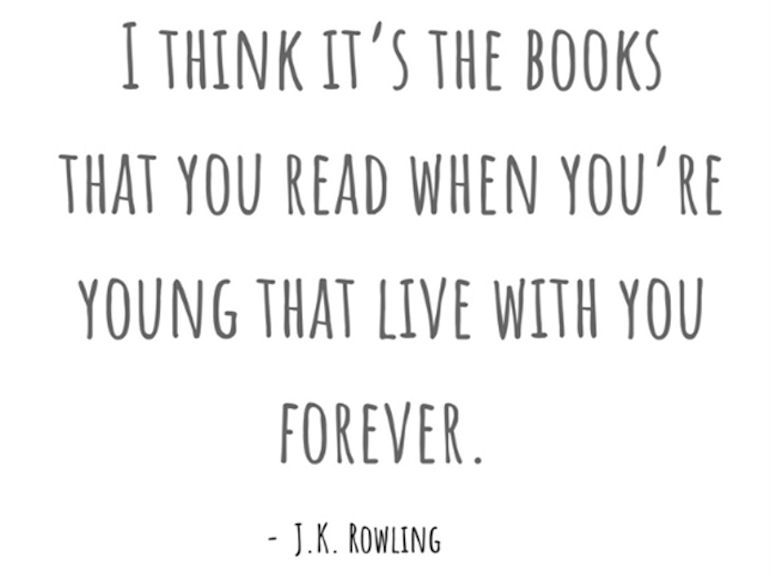
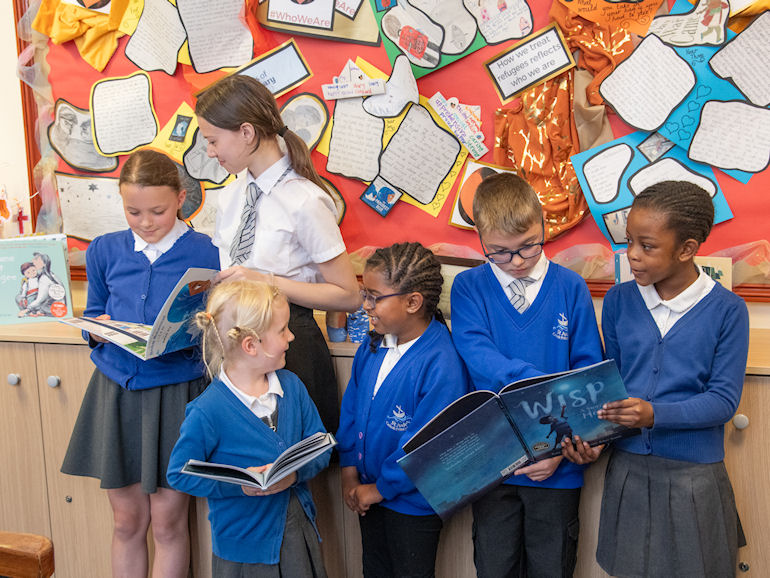
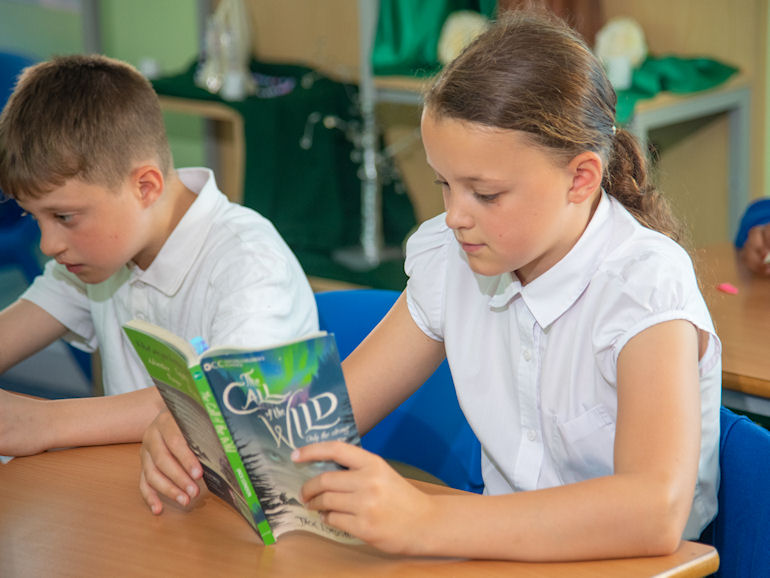
Our Approach to Teaching English
At St. Jude’s, since September 2021, we have adopted Read in to Writing as our tool for teaching English across the curriculum. Our scheme for the teaching of phonics (Rocket Phonics) runs separately to this and there are separate texts to support this learning; more information on this can be found below.
Read in to Writing (RitW) is a complete suite of materials that provides schools with a reading-rich curriculum for quality first teaching of English, from Reception to Year 6. The RitW curriculum differs from other English schemes available as it centres on high quality texts rather than simply texts as a stimulus for writing. This approach comes directly from the purpose of study for English which states, ‘Through reading in particular, pupils have a chance to develop culturally, emotionally, intellectually, socially and spiritually. Literature, especially, plays a key role in such development. Reading also enables pupils both to acquire knowledge and to build on what they already know.’
Reading is core to the English curriculum at St. Jude’s, fundamental to everyday English lessons and RitW embraces this. Each unit teaches reading in depth, first and foremost, through a rounded study of the whole text. Convincing writing tasks are embedded within this reading experience, so the children’s deep reading knowledge and understanding are crucial to the success of the writing. With this rich study of a book and the authenticity of writing, children invest in what they write; they want to write, have plenty to say and know how to say it.
The books being studied in the RitW curriculum have been carefully selected to give children a breadth of reading experience that includes exploration of themes, philosophical questions, context, the children’s own experiences as well as the emotional journey the characters go on in the stories. Thus, RitW helps children to develop in the ways intended from the purpose of study, whilst acquiring knowledge and broadening their vocabulary, using all that they learn to express themselves in writing. In this way, RitW develops children’s understanding of themselves, others and the world. A key feature of the RitW curriculum is that not only does the teacher regularly read aloud to their class but children are given more opportunity than before to read aloud and importantly, to rehearse their reading aloud in order to master their performance and understanding.
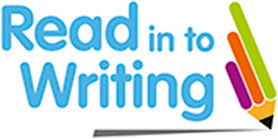
Coverage
RitW delivers the entire National Curriculum for English through a reading-rich programme of study, with key objectives for spoken language, reading, grammar and writing identified on the overview and each session. Influenced by Bruner’s notion of the ‘Spiral Curriculum’, children across each year group will learn and revisit many aspects of the curriculum, supporting the belief that English is a recursive subject and knowledge and skills need to be continually revised. The RitW curriculum provides progression within each year and across years, from Reception to the end of year 6, helping to avoid any dips in expectation or outcomes across the primary phase. RitW is a complete, coherent and cumulative English curriculum.
Structure of a Unit
The majority of the RitW units will last for half a term; time that is needed for this rich learning experience in reading and writing. This may seem unusual to some but the results from schools teaching the RitW curriculum confirm that this time is necessary to achieve the powerful outcomes for children.
Progression becomes clear within each session and across all of the sessions in a unit, as questioning delves increasingly deeper in to how meaning is made and how to make meaning. The order of questions is carefully thought through, to take children on a learning journey from overview to understanding to analysing deeper layers of meaning. This method gives children strategies for how to pay close attention to what they read. There are approximately 3 key pieces of writing in each unit. There are other pieces of writing that the children will do, which form part of the learning process. The key pieces of writing tend to be spaced evenly across the weeks and the final extended piece draws on everything the children have learnt in the unit, with a celebration of their achievements included at the end.
We have invested heavily in resourcing the English curriculum believing that pupils benefit from having their own copy of a text so that they can fully immerse themselves in their learning. If you would like more information about reading, writing, or any part of our English curriculum, please contact Mrs L Glennon, the English Lead. Please see the school overview of texts used to gather more information about Read in to Writing.
Phonics
We aspire that children will know all of the Phase 2 and 3 sounds by the time they come to Year 1; we aim to begin phase 4 by the end of Reception. By the time they move into Year 2, the national expectation is that they recognise and can ‘say’ all the Phase 5 phonemes too.
They are taught how to blend these sounds together to read them in words and to segment them when they spell.
Children have several phonics sessions each week and are encouraged to use these strategies in their reading and writing right across the curriculum! All staff involved in the planning and teaching of phonics have engaged in the relevant training to make sure that all pupils receive the same standard of quality teaching. Guided reading texts from the Reading Planet (Rocket Phonics) series compliment what pupils are learning and allow them to use new sounds in context.
Children are taught how to read and spell both the decodable and ‘tricky’ words from each phase of Letters and Sounds using a range of strategies, including the blending of phonemes.

Reading at Home
From early phonics development to fluency, Collins Big Cat is a whole-school programme that provides complete support for primary reading. It delivers effective phonics with fully decodable books, expertly aligned to Letter and Sounds and allows children to foster a love of reading with hundreds of levelled readers covering a range of fiction and non-fiction genres. Big Cat contains more than 1000 carefully levelled books to instil a love of reading in all pupils, written and developed by award-winning authors and supported by beautiful illustrations and stunning photography. They have been levelled to match the Institute of Education book bands for guided reading. For pupils learning phonics, texts are matched to the sound and phase that they are covering in school.
Please read more about how Collins Big Cat books are organised in to bands:
We ask that pupils read at home with a parent or other adult as often as possible, preferably every evening during the week and that a reading diary is sent back in to school to allow for strong communication between teachers and parents.
See the document below which may help you when writing in your child’s reading record, to describe how your child has read to you at home:
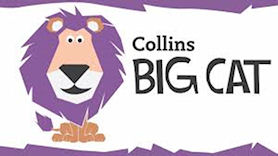
Handwriting
There has been a positive impact on handwriting in school by following this scheme and all staff had refresher training in September 2022.
Formation of lower letters is taught with letters grouped together in families.
Spelling
Please see the word lists below which detail the words which children are expected to be able to spell in different phases of their learning as they progress through school. These are cover fully the statutory requirements of the National Curriculum for spelling.

